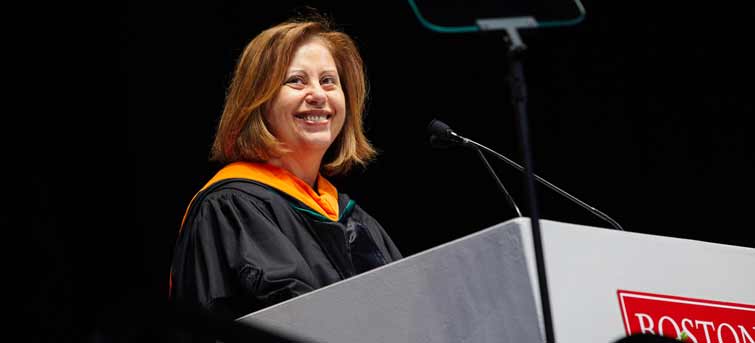In New Interview, Dean Zlateva Explains How CE Units Can Help Universities Serve Non-Traditional Learners
University continuing education units are in the spotlight, thanks to their role in helping their institutions establish protocols for remote learning in a COVID-19 world. The lessons learned now will inform how traditional universities serve their student populations in years to come, suggests Metropolitan College Dean Tanya Zlateva in “Continuing Ed’s Responsibility to Help Universities Serve a Non-Traditional Audience, which appeared recently in EvoLLLution.
Thanks to its vast experience serving nontraditional student populations through online learning and other flexible modes of study, Metropolitan College played an integral leadership role in BU’s remarkably agile transition to remote learning.
“In a nutshell, Metropolitan College provided knowledge and materials that helped a substantial chunk of BU classes go online smoothly,” Dean Zlateva says.
The Dean is impressed by how rapidly the university adapted to the sudden shift to remote learning, despite being in crisis mode. Now, she asks, how can universities capitalize on their “newfound respect for flexible learning” to better serve the needs of the workforce moving forward? With what is bound to be a rocky path to economic recovery, will universities find ways to encourage collaboration among the faculty of their research units and their continuing education units, for the greater good of all?
“I hope institutions will have the openness to listen and to make this a part of their overall strategy,” says the Dean. “There’s an increase in understanding the need to bring both of these ends together—an industry- and workforce-oriented curriculum paired with a research-intensive mission.”
Read the full interview with Dean Zlateva in EvoLLLution.
